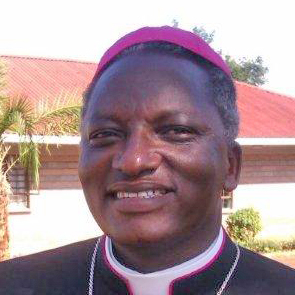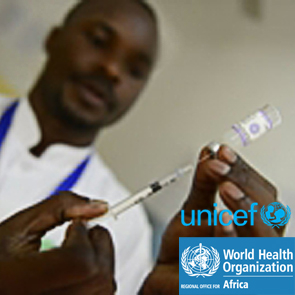Kenyan Catholic bishops have reiterated their opposition to a controversial tetanus vaccine campaign, saying their independent tests have proved the doses are laced with a hormone “that causes infertility and multiple miscarriages”.
On Tuesday, the bishops took the battle to parliament, where they tabled before the Parliamentary Committee on Health independent results indicating the vaccine contained Beta Human Chorionic gonadotropin (b-HCG), a hormone that the bishops say ultimately causes infertility.
The WHO- and UNICEF-sponsored vaccination campaign is targeting 2.4 million women. Dr Peter Okoth, Health Specialist at UNICEF Kenya country office supporting Child Health immunisation programme, said, “These are serious allegations by the Church that the vaccine is contaminated. But the WHO and UNICEF has serious quality control mechanisms. They ensure that a product is of good quality before it is distributed in any country."
 On Wednesday the WHO and UNICEF issued a statement expressing “deep concern about the misinformation circulating in the media”. They “confirm that the vaccines are safe” thanks to a “three-pronged global testing system”.
On Wednesday the WHO and UNICEF issued a statement expressing “deep concern about the misinformation circulating in the media”. They “confirm that the vaccines are safe” thanks to a “three-pronged global testing system”.
The Government also insists the vaccine is safe and the vaccination campaign will continue. But Bishop Paul Kariuki, the chairman of the Health Commission of the Kenya Conference of Catholic Bishops (KCCB) called on Kenyans to shun the vaccine, claiming that the vaccination campaign is a disguised population control programme.
Bishop Kariuki said the bishops – through church-appointed health experts - had tested the vaccines during a campaign in March this year at the University of Nairobi’s College of Health Sciences School of Medicine and a number of private laboratories in Kenya and South Africa. They made further tests in October.
According to the bishop the hormone b-HCG was found to be present.
Dr Okoth questioned the validity of the tests.
“The tests by the Catholic church are invalid because the church tested the vaccine using machines used to analyse human samples. A vaccine is not a human sample. We also notice in test results, the samples were not declared,” he said. " I don't think there is any laboratory in Kenya that has the capacity to test this vaccine."
However Dr Okoth confirmed that Unicef was investigating the allegations. “We are in contact with the government and we are ready to offer any support," he said.
“Once a mother develops antibodies against b-HCG, she rejects any pregnancy as soon as it starts growing in her womb thus causing repeated abortions and subsequent sterility,” said Wahome Ngare, an obstetrician affiliated with Matercare International, a faith-based health organisation that works in Kenya.
“We have to follow this through. We do not want Kenyans to ask, 'Where was the Church when all this happened?'” Bishop Kariuki told The Tablet.
He later told the parliamentary health committee that the Government should undertake joint tests of the vaccine with KCCB and other interested parties. The Church is not opposed to regular vaccines administered in Kenya by the Church’s own facilities or public health institutions, the bishop says. But he says the programme has been running without consultation with stakeholders, and with limited public information on its rationale, since Kenya is not facing a tetanus crisis, according to the bishops.
Dr Collins Tabu, head of the Health Ministry’s immunisation branch, told the Kenyan Nation newspaper “there is no other additive in the vaccine other than the tetanus antigen.”
According to Kenya's health ministry, about 550 babies died of tetanus in Kenya last year.
Above: Bishop Kariuki took the Church's concerns to the Kenyan Parliament




 Loading ...
Loading ...